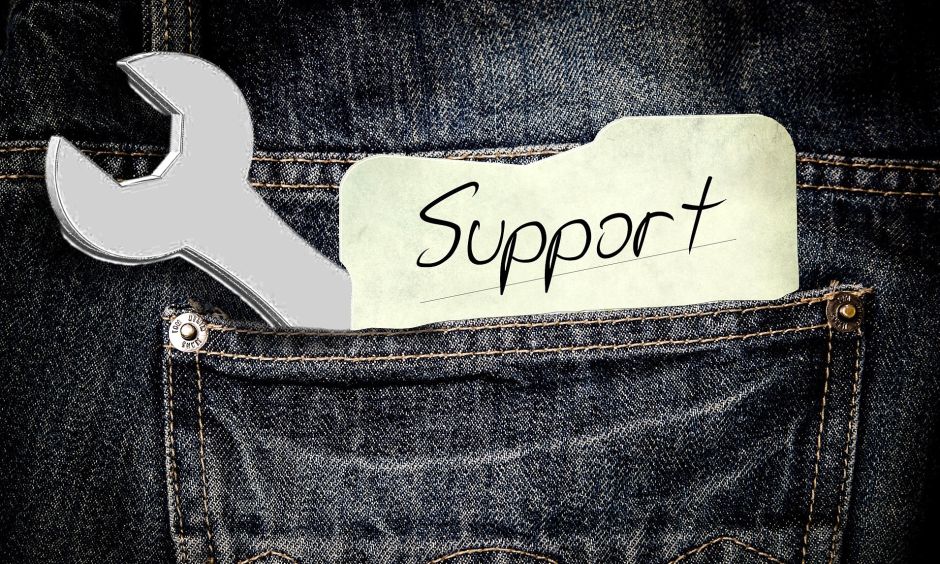The support needs to be better

When digital technology works properly, work becomes easier and more efficient, but when it doesn't, a ship's operations can be disrupted. According to a report funded by The Swedish Transport Administration, IT support must become better and more accessible in shipping. A follow-up project must address the problem.
“Just like any organization, shipping is also affected by bugs and other problems in its digital systems. The difference is that you are more exposed out at sea”, says Monica Lundh, a researcher at Chalmers.
Ships move. You work all over the world in different time zones around the clock and it is when things happen that you need support - not on Monday at eight o'clock when support opens. Of course, the fact that the internet connection often fluctuates does not make matters any better.
“This means that rather small and banal problems can have major consequences compared to what it has for a land organization. It has happened that ships have not been able to leave the quay because support was not available. The results in our report also show that system updates are running without warning and screens can freeze in the middle of a safety-critical situation, for example when mooring”, says Monica Lundh, who has done a large part of the research in the project The impact of digitalization on maritime safety and work environment of the crew.
The purpose of the project, which is a collaboration between The Swedish Shipowners’ association and Chalmers University, has been to increase understanding of the extent, nature and consequences of incidents and problems linked to digitization and automation on board ships.
“The project idea originated in discussions we had with our members, for example in our working groups for maritime safety issues. It goes without saying that digitalization and automation have major advantages, but also highlights that there are a lot of challenges, says Christina Palmén, responsible for safety and environmental issues at The Swedish Shipowners’ association”, who led the project.
In addition to the support problem, the report highlights a number of other problems, for example that systems are sometimes perceived as too complex, that they are not suitable for purpose and that the technology is too "immature" and not fully developed. Other problems relate to bugs in different systems, that you get too much information and that operators have to adapt to the technology and change the way they work.
“This also says something about the type of knowledge and competence that you need to have on board in the future to cope with these issues”, says Christina Palmén, who describes the report as a good analysis of the current situation.
“We have had a reference group connected during the course of the project with representatives from shipping companies, academia and authorities, and gradually it emerged that challenges with support functions would be something we could look at in the future.”
So how do you research support functions? Monica Lundh says that she has thought a lot about that question.
“Can the organization do anything to reduce the need for support? Can it be conducted in any other way than today? Is there some kind of special feature that shipping companies or ships must have? How does it look going forward? Everyone talks about digitization and automation and that the ships will become more advanced with even more technology on board, but if we already have problems that we don't solve, everything will be built on a shaky foundation. So this is something that we have to address.”
This is precisely what is being done in the follow-up project What to learn from the support functions to improve maritime safety, which has also been financed by The Swedish Transport Administration. This time, the manufacturers of the systems have also been invited to both get input from the industry and give their view on how their products can be developed.
“As a researcher, it is extra fun to be able to work with "real problems" formulated directly by the shipping industry. That is really a strength of this project. Various industry representatives and manufacturers are very willing and eager to participate and discuss and influence. It feels like something you prioritize and that affects all levels of an organization”, says Monica Lundh.
The report The impact of digitalization on maritime safety and work environment of the crew has been written by Monica Lundh (Chalmers), Christina Palmén (Svensk Sjöfart), Johannes Hüffmeier (ForeSea) and Scott MacKinnon (Chalmers)
-
 EU: Sjöfartens utsläpp ökar
EU: Sjöfartens utsläpp ökar -
 Sociala relationer påverkar val av bränsle
Sociala relationer påverkar val av bränsle -
 Sjöfartens omställning kräver ”mjukare” påtryckningar
Sjöfartens omställning kräver ”mjukare” påtryckningar -
 Hon hade avtalad tid med Kapten ynkrygg
Hon hade avtalad tid med Kapten ynkrygg -
 Lighthouse omvärldsanalys 2025 – osäkerhet och tullar präglar sjöfarten
Lighthouse omvärldsanalys 2025 – osäkerhet och tullar präglar sjöfarten -
 Se seminariet Shipping in the Marine Environment
Se seminariet Shipping in the Marine Environment -
 Vad betyder egentligen de 90 procenten?
Vad betyder egentligen de 90 procenten? -
 Hålla där...
Hålla där... -
 Ny rapport: Klimatförändringarna ett hot mot de flesta större hamnar i världen
Ny rapport: Klimatförändringarna ett hot mot de flesta större hamnar i världen -
 Nytt AI-verktyg tar lasthanteringen till nästa nivå
Nytt AI-verktyg tar lasthanteringen till nästa nivå

